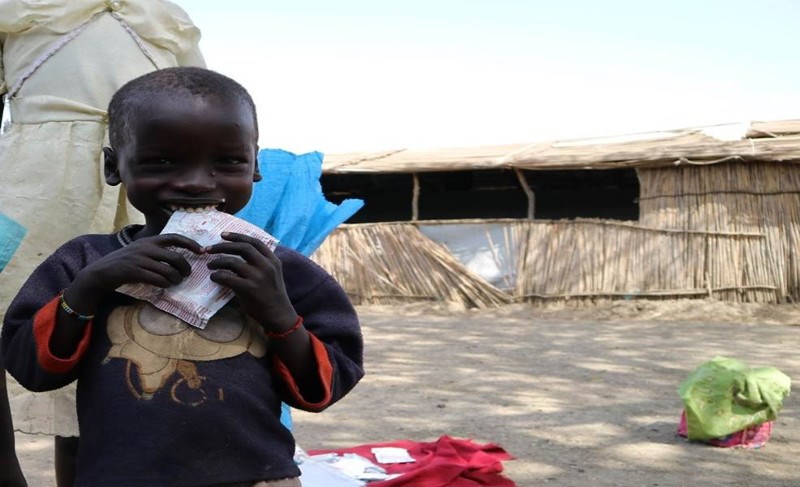Helping more aid reach people in poverty and crisis
Sustainability
June 27, 2017Reading time: 2 minutes
Amcor’s expertise is helping to improve packaging and reduce food loss, which could provide as many as 64,200 additional children with vital nutrition in one year
Amcor’s expertise is helping to improve packaging and reduce food loss, which could provide as many as 64,200 additional children with vital nutrition in one year

Through a multi-year partnership with the World Food Programme (WFP), Amcor is helping to ensure that safe, quality food items reach people in poverty and crisis.
The United Nations World Food Programme is the largest humanitarian organisation fighting hunger worldwide. Its Food Safety & Quality team visited Amcor recently to learn more about packaging innovation at the company’s Design and Pilot Labs in Manchester, Michigan.
Twenty million people are on the brink of starvation around the world, and humanitarian aid reaches them often only after long journeys through harsh conditions. Shane Prigge, Head of the WFP Food Safety Unit, says that improved packaging better protects food and other aid along some of the world’s most challenging distribution chains.
“We work with around two thousand suppliers worldwide. On any given day, we have 5,000 trucks, 20 ships and 70 aircraft on the move delivering food and other assistance to those most in need,” said Shane. “We need our suppliers to use packaging that withstands heat and humidity and can handle storage – sometimes in mobile tents, transport in trucks, mobile tents and airplanes, and multiple manual handlings. With support from Amcor, we are making sure that packaging is suitable and highly resilient so that aid reaches more beneficiaries efficiently and in the right condition.”
Amcor has provided the WFP team with training in Denmark and opened its laboratory doors in Belgium and the U.K., where WFP and Amcor collaborate to test and identify how to improve the packaging of food and other vital supplies. Amcor also supports a dedicated packaging specialist function which is based at WFP headquarters in Rome.

David Clark, Amcor’s Vice President of Safety, Environment and Sustainability, described how Amcor’s expertise is helping WFP deliver aid in durable packaging that enhances shelf life and food safety: “With Amcor’s technical guidance and support, the changes made to the packaging of nutritional supplement LNS-MQ has saved WFP almost $3.2 million and reduced packaging waste by 275 tonnes since May 2016. To put it in perspective, that cost-savings could be used to provide an additional 64,200 children in one year with the vital nutrition that will help them grow and stay healthy.”
The partnership between Amcor and WFP is now turning its attention to redesigning the packaging of high-energy biscuits; one of the first products the WFP distributes in emergencies. Work is also underway to improve the packaging used for vegetable oil that is delivered to people in harsh environments.

WFP collaborates with governments, the private sector, UN agencies, international finance groups, academia, NGOs and other civil society groups to increase its efficiency and effectiveness.
Amcor’s partnership with WFP is one of three global sustainability partnerships for the packaging company. Amcor is also providing resource and expertise to the Ellen MacArthur Foundation’s New Plastics Economy initiative to increase the recovery and recycling of plastic packaging, and has a long standing partnership with the Ocean Conservancy to reduce plastic packaging entering our oceans.
For more information about Amcor’s sustainability partnerships https://www.amcor.com/sustainability
For more information about the United Nations World Food Programme www.wfp.org.

